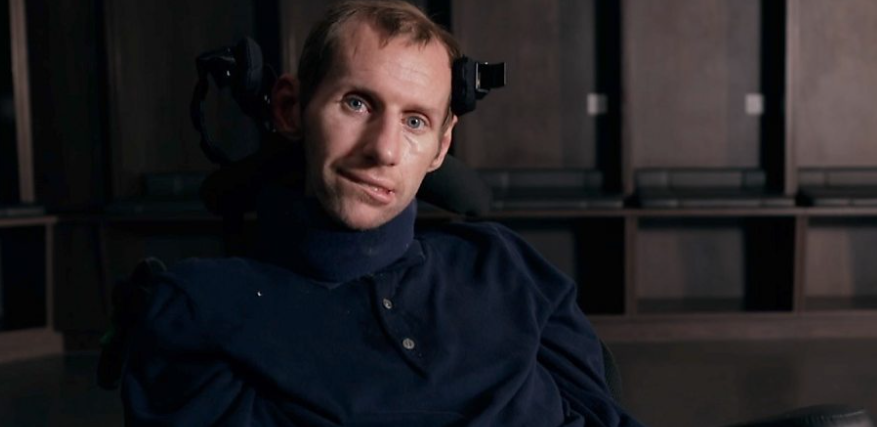
Rob Burrow is a name that resonates deeply within the rugby league community and beyond. Known for his extraordinary talent, resilience, and inspirational courage, Burrow’s story is one of triumph over adversity and an enduring legacy both on and off the field.
Early Life and Rugby Career
Born on September 26, 1982, in Pontefract, West Yorkshire, Rob Burrow showed early promise in rugby league. Standing at just 5 feet 5 inches, his stature often made him an underdog in a sport dominated by larger athletes. However, what he lacked in size, he more than made up for in speed, agility, and an indomitable will.
Burrow began his professional career with the Leeds Rhinos in 2001, quickly establishing himself as a pivotal player. Over 16 seasons with the Rhinos, he made over 500 appearances and scored more than 150 tries. His versatility allowed him to excel both as a scrum-half and a hooker, roles demanding different skills but united by his exceptional vision and playmaking ability.
Achievements on the Field
Burrow’s contributions were instrumental in Leeds Rhinos’ golden era. He won eight Super League titles, two Challenge Cups, and three World Club Challenges. His performances in crucial matches were often breathtaking. The 2011 Super League Grand Final, where he was awarded the Harry Sunderland Trophy for Man of the Match, is particularly memorable. His electrifying solo try in that game is still considered one of the greatest moments in Super League history.
Beyond his club success, Burrow also represented England and Great Britain on the international stage. His ability to consistently outperform opponents, regardless of their size, earned him widespread respect and admiration.
Battling Motor Neurone Disease
In December 2019, Rob Burrow revealed he had been diagnosed with motor neurone disease (MND), a progressive neurological condition for which there is no cure. The diagnosis came as a shock to the rugby community and sports fans worldwide. However, true to his character, Burrow faced this challenge with remarkable bravery and positivity.
His battle against MND has not only raised awareness about the disease but has also sparked an outpouring of support and fundraising efforts. The “Rob Burrow: My Year with MND” documentary, aired by the BBC, provided a poignant and intimate look at his life and fight against the disease, touching the hearts of many.
Legacy and Impact
Rob Burrow’s legacy extends far beyond his on-field accomplishments. His courage in the face of MND has inspired countless individuals and highlighted the need for further research and support for those affected by the disease. Fundraising events, such as the Leeds Rhinos’ marathon challenge led by former teammate Kevin Sinfield, have raised millions for MND research and support.
Burrow’s story is a testament to the human spirit’s resilience and the power of sports to unite and inspire. His determination, humility, and positivity in the face of adversity continue to serve as a beacon of hope and strength.
Conclusion
Rob Burrow’s life and career are a vivid reminder that true greatness transcends physical limitations. His impact on rugby league and his courageous battle against MND will forever be remembered. Burrow’s legacy is not just in the records he set or the trophies he won but in the hearts he touched and the lives he inspired. In every sense, Rob Burrow is a true legend of the sport.
Motor Neurone Disease (MND), also known as Amyotrophic Lateral Sclerosis (ALS) in some parts of the world, is a progressive neurodegenerative disorder that affects motor neurons in the brain and spinal cord. These neurons are responsible for controlling voluntary muscle activity, including speaking, walking, breathing, and swallowing.
Key Facts about MND/ALS:
- Symptoms:
- Muscle Weakness: Initial symptoms often include muscle weakness and atrophy, usually starting in the arms and legs.
- Difficulty Speaking and Swallowing: As the disease progresses, patients may experience slurred speech and difficulty swallowing.
- Respiratory Problems: Breathing difficulties arise in advanced stages due to muscle weakness.
- Cramps and Stiffness: Muscle cramps and stiffness are also common.
- Types:
- Sporadic ALS: The most common form, accounting for 90-95% of cases, with no clear genetic link.
- Familial ALS: A hereditary form that accounts for 5-10% of cases.
- Causes:
- The exact cause of MND/ALS is unknown, but it is believed to involve a combination of genetic and environmental factors. Mutations in certain genes (e.g., SOD1, C9orf72) have been identified in familial cases.
- Diagnosis:
- Diagnosis is primarily clinical, based on symptoms and physical examination.
- Electromyography (EMG) and nerve conduction studies (NCS) can help confirm the diagnosis.
- MRI and blood tests are often used to rule out other conditions.
- Treatment:
- There is currently no cure for MND/ALS.
- Treatments focus on managing symptoms and improving quality of life.
- Riluzole and edaravone are the only FDA-approved drugs that may slow disease progression to some extent.
- Supportive care includes physical therapy, occupational therapy, speech therapy, and nutritional support.
- Prognosis:
- The progression of MND/ALS varies among individuals, but it typically leads to severe disability.
- The average life expectancy after diagnosis is 3 to 5 years, though some patients live much longer.
Support and Research:
- Research: Ongoing research aims to understand the underlying mechanisms of MND/ALS and to develop new treatments. This includes studies on genetics, molecular biology, and potential neuroprotective agents.
- Support: Patients and families can benefit from support groups and organizations dedicated to MND/ALS, which provide resources, advocacy, and community support.
Organizations and Resources:
- The ALS Association: Offers extensive resources and support for those affected by ALS.
- MND Association: Provides information and support services for people living with MND.
- ALS Therapy Development Institute: Focuses on finding effective treatments and a cure for ALS.
MND/ALS is a challenging and complex condition, and advances in research and supportive care continue to offer hope for improved outcomes and quality of life for those affected.